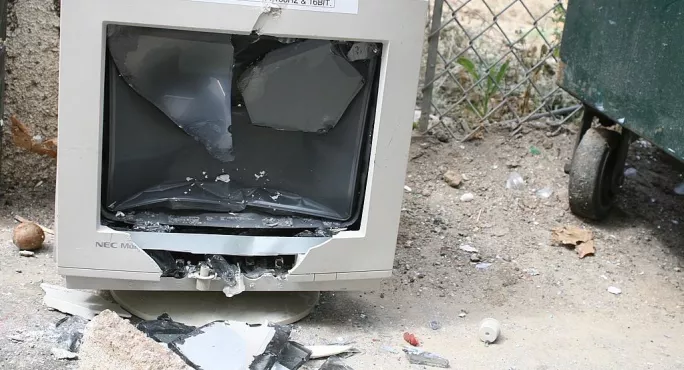- Home
- Computing lessons down by more than a third in five years
Computing lessons down by more than a third in five years

The number of hours spent teaching computing in English secondary schools has fallen by 36 per cent over five years, a new report reveals.
The research warns that there has been a decline in computing provision, both the hours being taught and the numbers taking qualifications, across the country between 2012 and 2017.
The sharpest drop was at key stage 4, where 31,000 fewer hours were taught per week in 2017, a drop of 47 per cent over the five years.
And in the past year the number of pupils entering computing qualifications has fallen by almost half following a league table shake-up.
Quick read: Exam changes are a turn-off
Warning: Computing teaching ‘patchy’
Background: Plans for new national computing centre
The new report from the University of Roehampton warns that if pupils do not choose GCSE computer science it is unlikely they will be getting any computing education beyond the age of 14.
Computing ‘under threat’
It also highlights the impact of the removal of the European Computer Driving Licence from performance league tables.
This led to the number of entries in vocational computing qualifications at level 2 plummeting from 154,796 in 2017 to just over 20,000 last year.
Overall, the number of computing qualification entries dropped to 175,230 in 2018 from 318,781 a year earlier.
In 2017 the government announced the creation of a new £84 million National Centre for Computing Education.
The Royal Society had warned that year that computing education was “patchy and fragile”, and £60 million was needed to train the secondary teachers needed to deliver GCSE computer science over the following five years.
The GCSE in computer science was introduced in 2014.
Last year, the University of Roehampton warned that the scrapping of the ICT GCSE and the removal of other vocational qualifications from league tables was leading to fewer and less diverse students studying computing.
The report’s authors said while numbers taking the computer science GCSE had risen, computing science and ICT were different qualifications “taken by quite different students”.
Today’s report, from the university, shows that the percentage of students sitting GCSE computer science increased but only slightly from 12.1 per cent in 2017 to 12.4 per cent of all GCSE students in 2018.
The report’s author, Peter Kemp, said: “The government clearly sees the importance of computing through the establishment of the £84 million National Centre for Computing Education, and it is encouraging to see a slight increase in the number of students sitting GCSE computer science (CS) and schools offering the qualification.”
The senior lecturer in computer education added: “However, the overall picture is that young people are now less likely to access any computing education than they were before CS was introduced. If computing increasingly means CS, it looks likely that hundreds of thousands of students, particularly girls and poorer students, will be disenfranchised from a digital education over the next few years.”
The report’s findings include:
- The number of hours of computing/ICT taught in secondary school dropped by 36 per cent from 2012 to 2017.
- Across the country, at key stage 4 (KS4) 31,000 fewer hours were taught per week - a 47 per cent decrease over this timeframe.
- The overall number of computing/ICT qualification entries from students at Year 11 decreased by 144,000, or 45 per cent, between 2017 and 2018.
- The percentage of students sitting GCSE CS increased marginally from 12.1 per cent in 2017 to 12.4 per cent of all GCSE students in 2018.
- In 2018, 43,101 students (7.6 per cent) were in a school where no KS4 computing qualifications were offered.
Register with Tes and you can read two free articles every month plus you'll have access to our range of award-winning newsletters.
Keep reading with our special offer!
You’ve reached your limit of free articles this month.
- Unlimited access to all Tes magazine content
- Save your favourite articles and gift them to your colleagues
- Exclusive subscriber-only stories
- Over 200,000 archived articles
- Unlimited access to all Tes magazine content
- Save your favourite articles and gift them to your colleagues
- Exclusive subscriber-only stories
- Over 200,000 archived articles



